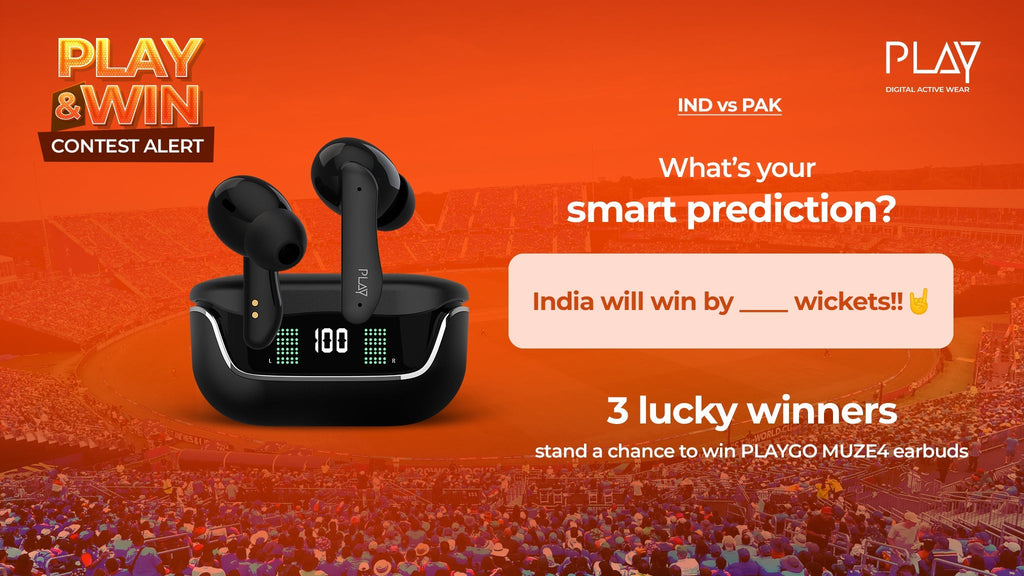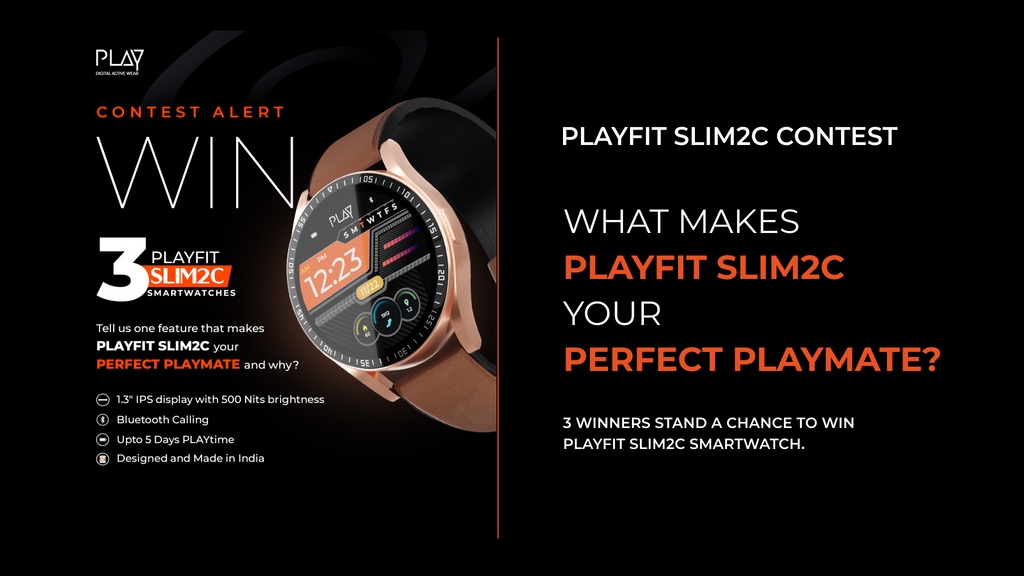

How Accurate Are Fitness Trackers?
When it comes to staying in shape, a little help can go a long way. Come to think of it, your health and fitness take the back seat when personal and professional priorities take over. Little surprise then that fitness trackers have become a go-to device to give you the much-needed nudge to stick to your exercise regimen. But has anyone really answered the question of how accurate are fitness trackers in general? Is there even something called the most accurate fitness tracker?
Does the Most Accurate Fitness Tracker Exist?
Let’s all agree to disagree, as it’s a question of perception. So, let’s instead address the elephant in the room, shall we? How do you ensure you get the most accurate fitness tracker results. To do that, let us look at the various functions that fitness trackers perform.

Measure, track and log the progress of your fitness and health stats by connecting your PLAYFIT device to the mobile app.
1. Counting Steps
Most people use fitness trackers to keep count of the number of steps taken every day. While people tend to use the smartphone for this as well, the fact is that it isn’t a great alternative simply because it is not likely to be on your person every time that you are walking. Even more so when you are working out.
You need to ensure that you are mindful of some aspects, to ensure that the tracker records your steps accurately.
- Firstly try and wear the device on your non-dominant hand: Since your dominant hand is more active, there is a chance that extraneous activity such as wielding a hammer or stirring a pot, could be misconstrued as a movement.
- Ensure that you wear the device firmly on your wrist: A loose fit can lead to false step counts as also prevent features such as heart sensors to work accurately.
2. Measuring Heart Rate
Let’s face it, no tracker out there can replace the accuracy of medical equipment. Research suggests that recording your heart rate in times of intense exercise, trackers could show slight variations. We recommend that you focus instead on tracking your average heart rate over a period to measure improvements on your overall cardio fitness. This is really what you should be looking at.
To get the most accurate fitness tracker results, make sure your band fits you well. Also ensure that there is no obstruction to the HR sensor like sweat, cloth or excess pressure from getting accurate results.
3. Sleep Tracking
Your fitness trackers come in handy in recording an outline & quality of your sleep. This helps recognize patterns in your sleep habits and identify areas of improvement. Activity band detect sleep when you lie in bed without making any movement for over an hour, and also based on your heart rate. Errors can occur in your reading if:
- You’re not in a complete sleeping position,
- Your band doesn’t fit well, or
- When you sleep on your band.

Useful insights on the PLAYFIT App lets you focus on your progress, not the numbers!
The importance of the tracker for sleep really lies in some actionable insights that the tracker can throw up. If, for example, you knew that shifting your sleep pattern from 10 pm to 6 am could make you feel charged up or that you sleep better on the days that you exercise or that you sleep better when the room is several degrees cooler, wouldn’t that be priceless information? With user-friendly graphs that make it easy to spot these trends, a fitness tracker can give these ever so important and actionable snippets of information.
4. Burning calories
If you are on a weight loss regimen, you might want to count the calories burnt. Keep in mind that for slow, non-vigorous activities, it is hard to record the energy expenditure with 100% accuracy. You might have noticed that your tracker gives you a higher/lower estimate of your calorie expenditure when compared to the inbuilt sensor of an electric cycle or a treadmill. This is because of the added HR sensor on the tracker, which helps in determining calorie output more accurately.
Closing thoughts on the Most Accurate Fitness Tracker
In looking for that most accurate fitness tracker, do bear in mind the fact that a fitness tracker is best used to track your progress. So, stop obsessing on individual data points.
It is when you are tracking anything related to your health, that you are more aware of your choices. When you count steps, for example, you tend to walk more; when you track your calories, you automatically tend to be more conscious of what you eat. Beyond any individual functionality, fitness trackers draw their importance from the fact that they encourage you to be active and stick to your health goal and resolutions! So go ahead and set those fitness goals and let your tracker be your ally!


